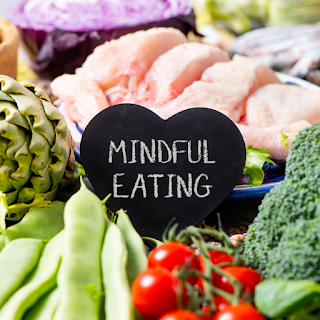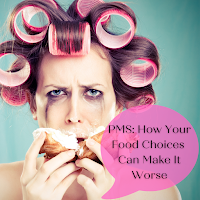Is Your Diet Responsible For Your Bad Mood?
We all know (in our minds!) that we should be eating better than we do already, so I'm not going to teach you to suck eggs! (Although, they are a great source of protein and Omega-3's!)
When you eat (I'm talking in general now!) There are signals that fly everywhere all over your body that give certain messages to certain areas of the body, and one of those areas is responsible for your moods, both good and bad and everything in between.
The food you consume helps you to become more responsive to everything, more alert and awake, and more focused on the tasks that really matter in your day.
So Saying that... how are the things that you eat (and drink) and your overall mental health connected?
Let's consume some ideas! (Haha, see what I did there!?)
The foods that you consume and the way you feel in yourself share a complex and crazy relationship!
When you feel down, depressed or anxious, you are so much more likely to grab the nearest takeaway menu or shop for junk food to comfort yourself and make yourself feel better.
But wait! The mood came first here!
This goes to show that your state of mental health can have a detrimental impact on the foods you choose to consume and can affect those pesky sugary and salty cravings.
But, as you have probably experienced yourself, it acts in the opposite direction, too!
Here is the science-y bit!
Every morsel of food you eat has a variety of vitamins, minerals, and nutrients that send specific signals to the brain and will trigger certain chemical reactions.
The exact chemical reaction that is triggered in your brain wholly depends on the food you eat and its nutritive values.
There are a particular set of foods that are sometimes called "brain food" or "Superfood" that triggers positive reactions in the brain and increase the positive response in the brain.
On the other hand, there are, of course, those foods that can affect your mental health in a negative way.
One of the biggest culprits for this is refined sugar!
Have no doubt, it makes you feel amazing instantly, but once the short-term reaction to the sugar-hype in your brain passes, you'll feel the downward spiral of its negative effects kick back in.
There is another group of foods that isn't particularly good for your mental health, and those are the foods that prevent the brain from transforming the nutrients you consume into the things that the brain needs and these are generally the dreaded saturated fats.
For example, butter isn't particularly good brain food.
Rather than supporting good memory, helping your focus, and releasing those feel-good hormones, butter may be related to a decrease in cognitive function.
There is so much more research to be done on how saturated fats and refined sugars specifically decrease the functions of the brain.
Until then, it's probably best to limit the intake of these mood killers!
Is Your Company To Blame?
We are a culture of social eaters! And our diet includes every single one of our eating habits, and this includes sharing meals in the company of other people and sometimes picking up on their eating preferences.
Sharing meals in a group is a significant element for your mental health because when you eat in a group with other people, you develop deep connections with those other people, which allows you to put your focus on something other than the food you are eating.
Studies have shown how important the notion of family meals is for the mental health of children and young adults, and this is definitely something that adults feel too! Those people who have frequent dinners with their families were reported to have lower instances of depression, social anxiety, and food-related illnesses.
Is Convenience The Culprit?
We live in a crazy society that relies so heavily on "convenience for sustenance" when actually, there is not much nutrition and goodness happening as a result of the convenience.
Why make a hearty salad when you can buy a burger and fries where you literally dont have to leave your car, right? (P.s....wrong!)
More often than not, the pleasure of food includes everything from food preparation, eating the food and cleaning up afterward. If you can find pleasure in these things, then you will start to understand that the joy that is put into mealtimes positively affects your mental health too!
You need to eat every day, so proper mealtimes should be an important part of your daily routine, and the habits you develop from the mealtime process will positively affect your mental health.
Eating Disorders as Part of The Complex Food-Mental Health Connection
Let's discuss eating disorders.
The reasons why eating disorders manifest are still factually unclear; it is inherently different for each person who develops an unhealthy relationship with food to extremes.
More and more emerging evidence suggests that the choices of food aren't the only singular factor that begins or leads to eating disorders.
An eating disorder can be deeply connected with an unhealthy approach to food, your beliefs on what is food-normal, or a negative body image.
Each eating disorder requires a specialised approach and treatment; there is no super-cure, and not every hat will fit the heads of everyone.
Not only do eating disorders affect the overall well-being of the person, but it also affects the mental health of that person too.
Food Mood - The Bottom Line
Food, while we love it or hate it, your choices of food can make you feel good or not so good, and this in terms of energy levels, overall feeling, and mood boosts, and mood slumps.
Some foods are excellent for concentration and mind health, such as fatty fish, leafy green veg and berries, etc., so stocking up on those is never going to be a bad mood-move!
On the other hand, if you are finding that you have mood slumps, dips, or horrendous fluctuation (commonly known as mood swings, which I'm sure we all know from someone who gets "Hangry"!), you need to be avoiding those hit-high foods, such as sugary drinks, fast food, alcohol, and convenience everything...The mood may be great at the beginning, but the crash is not worth the high!
Stabilising your mood through food is wholly possible, and the more you create more good-stuff consistency in the food you intake, the better your mood will consistently be, rather than the convenience roller-coaster that society shows us today!
Are mental health, physical health, and food choices big motivators for you to build healthier eating habits and choose food wisely?
Share your thoughts in the comments!









I definitely fall into the convenience trap sometimes so I need to work on that; and I can definitely relate to what I eat impacting my mood in a negative way. Thanks for this info and reminder to eat a more balanced diet.
ReplyDelete